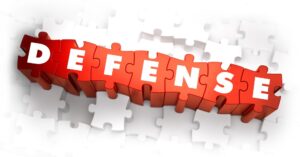There could be several causes behind the phrase “why I am single”. Single people are often viewed as sad, lonely people who have no one in their lives they’re close to. It’s not always that way though and here are some reasons why you may be single too.
Contents
- 1 Why I Am Single?
- 1.1 1) Defenses
- 1.2 2) Self-defeating beliefs
- 1.3 3) Unhealed wounds
- 1.4 4) Lack of healthy relationship role models
- 1.5 5) Insecure attachment styles
- 1.6 6) Dishonesty
- 1.7 7) Being intimidated by others
- 1.8 8) Unresolved conflict
- 1.9 9) Fear of intimacy
- 1.10 10) Short-term thinking
- 1.11 11) Unrealistic expectations
- 1.12 12) Waste-not, want-not attitude
- 1.13 13) Not having an identity
- 1.14 14) Undervaluing yourself
- 1.15 15) Low self-worth
- 2 Why Being Single Is Not A Bad Thing?
- 3 Therapy To Overcome Fear Of Relationship/Commitment
- 4 Conclusion
Why I Am Single?
 There are many reasons why people are single. Some people may be single because they haven’t found the right person yet, while others may be single because they’re not looking for a relationship. Here are some answers to “why I am single”. It is possible you-
There are many reasons why people are single. Some people may be single because they haven’t found the right person yet, while others may be single because they’re not looking for a relationship. Here are some answers to “why I am single”. It is possible you-
- Haven’t found the right person yet
- Not looking for a relationship
- Focusing on your career
- Don’t have time for a relationship
- Don’t want a relationship
- Waiting for the right person to come along
- Don’t want a relationship now, but you’d like one in the future
- Family and friends are as important as a partner
- Don’t need a relationship to feel complete or satisfied with your life
- I can’t find anyone
- I’m pessimistic. – The chance of meeting someone else like me is slim to none.
- My history leaves much to be desired when it comes to men in relationships (i don’t want to jinx myself).
- Haven’t met anyone recently, but my friends say they know lots of guys who are single and looking for love… could be worth a try!
- Don’t think anyone’s interested
- All the good ones are taken
- I’m just that spiteful
- My spouse left me, so now I’m alone
- Have no time for dating. I’m just too busy with work.
- Haven’t found anyone who fits my demanding standards yet.
- Waiting for the perfect person to come into my life, and don’t want to settle with just anyone.
- Too picky and set in my ways to find a match. (Are you sure about that?)
- Think the only people who are interested aren’t good enough for me. (Just remember, there’s someone out there looking for you just as hard as you’re looking for them).
People may judge others who are single, but only because they may not understand the real reasons why you’re single. People are often judged for being single, especially when they were formerly in a relationship or married. If someone is alone, people often assume that something must be wrong with them. It’s important to remember that being single doesn’t mean that you have any sort of defect or flaw.
1) Defenses

The majority of individuals have been wounded in interpersonal interactions. We all risk developing varying degrees of bitterness over time and becoming defensive as a result of various painful events. Giving up these defenses can be hard, but it’s even harder to maintain them with an unending stream of hurtful relationships. Our best defense is what helps us attract nurturing people into our lives, not repel them… and that’s to open ourselves up and become vulnerable in all our interactions (even though we certainly don’t want to give out the wrong impression).
2) Self-defeating beliefs
These are beliefs we hold about ourselves and how the world works, which make starting and maintaining relationships with others extremely difficult. We have to examine our self-defeating beliefs in detail… And replace them one by one with healthier ones so that it becomes easier for us to both initiate and maintain relationships.
3) Unhealed wounds
We all have old emotional hurts that need to be healed, sometimes with professional assistance. After our emotional wounds are healed, we feel better about ourselves… which makes it much easier for us to make changes in our lives; including how we act in relationships with others. Sometimes just the act of healing an old wound can help you find true love.
4) Lack of healthy relationship role models

Every time we disappoint someone, fall out with them or end the relationship, we lose another opportunity to observe how relationships work (and how they don’t). And every time this happens, it makes it harder for us to make sense of our own experiences and thus develop the healthy relationship habits we need to be successful… without having had the benefit of someone else’s example.
5) Insecure attachment styles
It’s well known that how secure or insecure a child feels in the company of their primary caregiver(s) when they’re very young can have a lasting impact on the kind of person they become in their interpersonal relationships as adults. The types of insecure attachments children form with their parents are known to affect how secure or insecure we are when forming relationships with others later in life.
6) Dishonesty
It’s very important to be ‘in integrity with our words and actions when we’re in relationships (because doing something else will only confuse the other person). Dishonesty can come in many forms, such as projecting an image of yourself that others like and then feeling shocked and disappointed when they enter into a relationship with you after getting to know this false image of yourself.
7) Being intimidated by others
It’s part of human nature to feel threatened by people who are better looking, more attractive, or just generally better off than us in various ways… but these feelings only become a problem when we let them affect our actions and don’t stand up for what we really want to do. If you’re starting to feel intimidated by certain people, remind yourself that the only person who can really hurt you is yourself… and that your feelings of insecurity are there to protect you (not harm you).
8) Unresolved conflict
Unresolved conflict can be very destructive to our peace of mind, but it’s also extremely damaging to a relationship. If we want a healthy, loving, and lasting relationship with someone else, we have to resolve our differences by talking them through honestly and openly.
9) Fear of intimacy

It’s not unusual to be afraid of getting too close to someone or being vulnerable in a relationship… but it is very dangerous because letting down our guard and allowing ourselves to feel intimate with people takes strength, courage, and a lot of patience. If you’re finding it hard to get close to other people, remind yourself that you can’t really feel love for someone else without investing your time and energy… and that withdrawing from them can only lead to more loneliness and fear of intimacy in the future.
10) Short-term thinking
Humans have a natural tendency to take the easy route, and sometimes this is fine… but taking the quick-fix or short-term approach to finding love will almost always lead to long-term pain. For example, say you’re desperate for love so you go looking for it at all costs in the bars and clubs late at night where you’ll be surrounded by people inebriated with alcohol or drugs. Not only will these people likely be more difficult to get along with, but you’re also putting yourself at risk of having your heart broken for nothing. Likewise, if you’re looking for love on the internet using online dating websites, it’s very easy to end up falling in love with a picture of a person rather than the real thing.
11) Unrealistic expectations
It’s very easy to confuse falling in love with our idea of what falling in love should be like… but this will only lead to pain and confusion when we realize that reality is not living up to our expectations. For example, say you have a very idealistic vision of what it’s like to be in a relationship with someone else… and then when the person you’re with behaves in an ordinary way, you think there’s something wrong with them.
12) Waste-not, want-not attitude
It’s perfectly healthy in most cases to save up for a rainy day… but if you’re not spending your money on anything, or if you’re so afraid of being in an uncomfortable situation that you never try anything new, it will be very hard for someone to fall in love with you.
13) Not having an identity
If we want to attract someone else into our life it’s important that we have an individual identity of our own, rather than having one that’s based on the other person. Having no identity in this sense is essentially losing yourself… and when you lose yourself it becomes impossible to fall in love because there’s nothing really for the other person to fall in love with.
14) Undervaluing yourself
Conversely, it’s very important not to undervalue yourself. If you think you’re worth less than other people, it will be difficult for anyone to love you because there will always be this nagging feeling that they could do better.
15) Low self-worth
If we don’t feel at least reasonably worthy of another person, it’ll be hard for someone to fall in love with us. If we feel unworthy, it’s impossible for another person to be able to make up for that lack of self-worth and bring feelings of real joy into our life because we’re not open to receiving their love.
Why Being Single Is Not A Bad Thing?

Being single is not a bad thing. In fact, there are many benefits to being single that often go overlooked.
Some of the advantages of being single include. YOU-
- don’t have to compromise your beliefs or lifestyle to please someone else.
- can do what you want when you want.
- can focus on your own needs and goals.
- don’t have to worry about another person’s feelings or needs.
- can explore new relationships without the commitment of a serious relationship.
- can learn more about yourself and what you want in a partner.
- have the time and energy to pursue your passions.
- can take a break from dating so you can remember what brought you happiness before meeting someone else
We often think that being in a relationship or married is something that we need in our life. However, it’s important to realize that there are many benefits to being single. In fact, there are even more benefits to being single than there are to being in a relationship or married!
For example, when you’re in a relationship, you have to make compromises and constantly think about someone else’s feelings and needs before your own. But when you’re single, it’s perfectly acceptable if want to spend time by yourself doing your own thing.
Therapy To Overcome Fear Of Relationship/Commitment

If you’re someone who struggles with the fear of commitment, then therapy may be a good option for you. In therapy, you’ll be able to explore the root of your fear and learn how to manage it.
Some of the things you may learn in therapy include:
– The definition of commitment and what it means to you.
– How to identify commitmentphobia in yourself and others.
– The signs that indicate that you’re ready for a committed relationship.
– How to communicate your needs and wants in a relationship.
– Tips for overcoming your fear of commitment.
– How to overcome the urge to run when you feel unable to commit.
Therapy can seem scary, but it’s actually a supportive environment where you’ll be able to voice your emotions and feelings. A therapist is there to listen and give advice based on their professional opinion; they aren’t going to judge you for anything that you say.
Conclusion
We’ve all heard the phrase “why I am single” or “you will never find someone as good as you” and it’s true. You deserve to be with a partner who is just like you, but better. A partner that understands your quirks loves them and takes care of them because they know how much time and effort goes into being this person for yourself. They love taking trips with you or sitting home on their own couch watching TV while cuddling up next to you after work. The point is: we’re all different and there are plenty of people out there who would LOVE the opportunity to date YOU! So don’t settle for anything less than what’s right for YOU – go live YOUR best life now 🙂
For more information, please contact MantraCare. Relationships are an essential part of human life. It is the connection between people, and it helps us to form social bonds, understand and empathize with others. If you have any queries regarding Online Relationship Counseling experienced therapists at MantraCare can help: Book a trial therapy session


